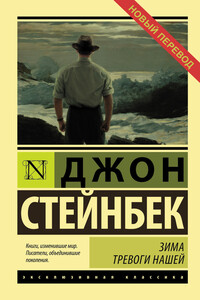Once there was a war | страница 62
THE YANKS ARRIVE
LONDON, July 28, 1943—The little gray English station is set in the green, rolling fields where the grass is being cut and, where the mowing machine has gone, the cut grass is wilting and the red poppies are wilting. The double tracks go by the front of the station and a “Y” siding runs in back of the station. At 4:03 the American commandant and four officers drive to the station. A British officer comes out of the signal-man’s room. “The train will be four minutes late,” he says. All the officers look at their watches. On the main line a through train roars through at about seventy miles an hour. The young lieutenant says, “I thought British trains were slow.”
“They used to hold the world’s record for speed,” the commandant says.
On another track a freight train moves rapidly through the station. The flat cars are loaded with tanks, a solid line of tanks the whole length of the train. A hundred yards from the station a clubmobile is parked, a bus converted into a kitchen for the cooking of doughnuts and coffee and run by two Red Cross girls. Their coffee urns are steaming and great baskets of doughnuts are accumulating. They lift out the doughnuts and load the baskets with them. On top of the bus is a loudspeaker connected with a phonograph.
The commandant says, “That big girl is a great one. We got five hundred men at six o’clock this morning. They were pretty tired. That big girl put on a record and did a Highland fling to some hot music. She’s a funny one.” The smell of the cooking doughnuts comes down the breeze.
The British officer comes out of the signalman’s house again. “It will be here in three minutes,” he says. And again the officers look at their watches. The little train comes around the bend. It passes the station, puts its tail into the “Y,” and backs into the siding. The compartments are solid with helmeted men and their equipment is piled in front of them to the knees. Their faces are almost as brown as their uniforms. They are sitting with their packs on. It is a hot afternoon, one of the few of the summer.
As the train pulls in, the phonograph in the clubmobile howls, “Mr. Five by Five.” The sound carries a long way. The soldiers turn their heads slowly and look toward the music. Now a sergeant runs down the side of the train and opens the doors of the compartments but the men do not move. A stout captain, with a very black mustache, shouts, “All right, men. Pile out of it.” And the little compartments disgorge the men. They stand helplessly on the platform, their shoulders damp with sweat under the pack straps and their backs wet under the packs. They carry their barracks bags too and the things which won’t go in, a guitar here, and a mandolin, a pair of shoes. One man has a mongrel fox terrier on a string and it stands beside him panting with excitement.




